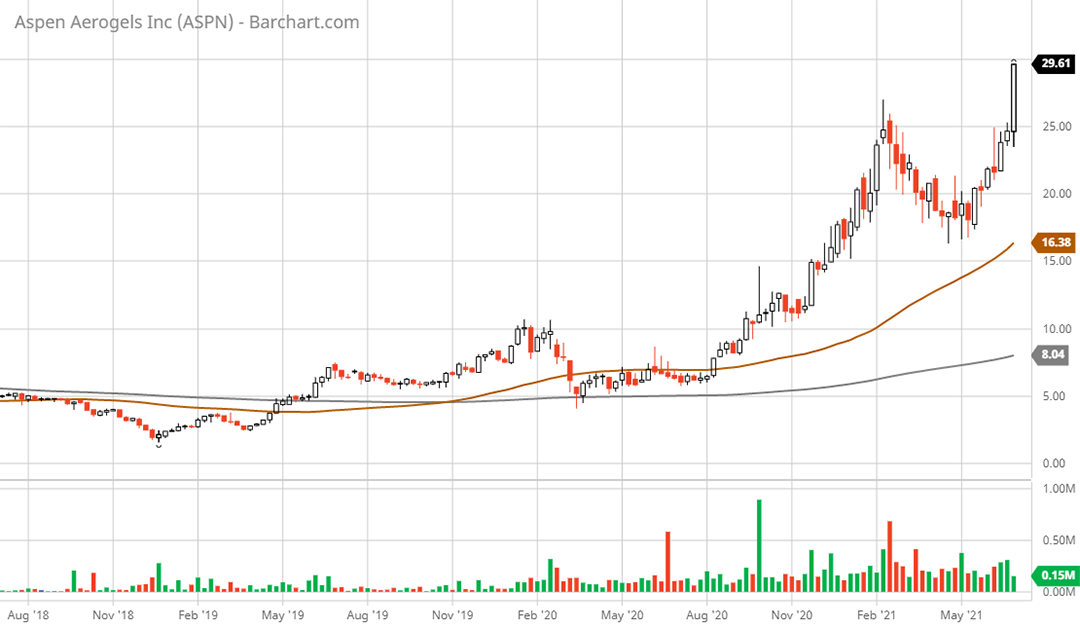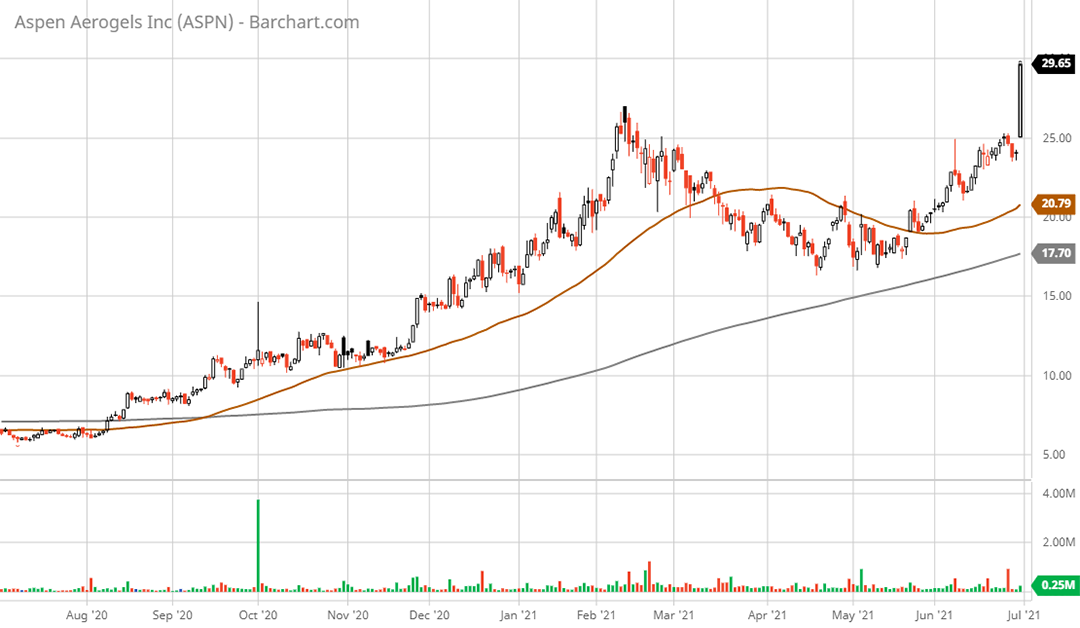Risk/Reward Rating: Neutral (look to accumulate on price weakness)
Aspen Aerogels yesterday announced a $75 million investment by a subsidiary of Koch Investments Group at $21.663 per share. Aspen is on the cusp of what could be an incredible opportunity in many secular growth industries. Donald R. Young, Aspen’s President and CEO, believes the company has the opportunity to double sales every two years through the end of the decade. The Koch investment resolves the primary constraint facing Aspen, the need for additional long-term growth capital to build out capacity in order to penetrate new markets and meet demand.
We noted in April of 2021 that the recent Tesla electric vehicle (EV) crashes featuring runaway fires and passenger deaths highlighted a major use case for Aspen Aerogels products. Their PyroThin™ thermal barriers address the thermal runaway risk in electric vehicles and could become the gold standard in EV safety in this regard. Global EV production is set to explode over the coming decade, which represents one of Aspen’s primary growth opportunities.
The energy industry offers many use cases and growth opportunities for Aspen’s technology and products. The traditional oil and gas sector has been a historic driver of revenue and should continue in this role. This will be supplemented by emerging energy use cases where resource efficiency, asset resiliency and safety are requirements. These energy requirements are likely to be more acute going forward as ESG mandates will be front and center playing into Aspen’s strengths.
Aspen’s strengths are in energy technology as it relates to innovative thermal management solutions via insulation. Aspen’s aerogel insulation is up to five times more effective than traditional insulation materials within a much smaller and lighter form factor making it the most efficient industrial insulation on the market.
The company’s patented aerogel products and manufacturing technologies are significant assets and create a competitive moat that should insulate it from competition. Interestingly, Aspen Aerogels developed its technology in collaboration with NASA for space applications which highlights the technology and the wide range of use cases: https://spinoff.nasa.gov/Spinoff2010/cg_2.html.
Silica aerogels are complex structures in which 97% of the volume consists of air trapped between intertwined clusters of amorphous silica solids. These extremely low-density solids provide superior thermal and acoustic insulating properties and have been described as ‘otherworldly.’ The future looks bright for Aspen Aerogels.
Valuation: 9x 2020 sales and 0.5x end of decade revenue if sales double every two years. The company is not profitable as sales have been stagnant for some time. As the company scales, profit margins are a wild card which introduces an elevated level of risk into the equation.
Technical backdrop: Sales have been stagnant since the company went public in 2014 at $11. The IPO price was surpassed for the first time in November of 2020 with a vertical move from $5 to $27. The anticipation of secular growth opportunities finally materializing was behind the move. The stock found support in the $18 area after this initial thrust and has resumed the upward momentum with the Koch investment. While overextended in the short term, any material share price weakness should provide a good entry point for long-term, high-risk high-reward opportunity investors. The Koch investment occurred at $21.663 per share.
Technical resistance: None visible as the stock is at all-time highs.
Technical support: $25 area then the $20 zone.
Price as of report date 6-30-21: $29.22
Aspen Aerogels Investor Relations Website: Aspen Aerogels Investor Relations



